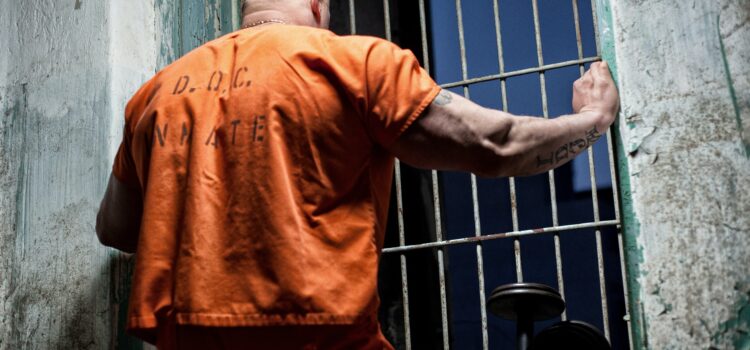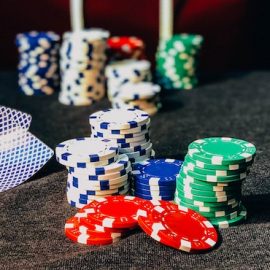

This article is an excerpt from the Shortform book guide to "Free Will" by Sam Harris. Shortform has the world's best summaries and analyses of books you should be reading.
Like this article? Sign up for a free trial here.
Should justice be punitive or restorative? Are people really to blame for the criminal choices they make?
Sam Harris contends that free will is an illusion; our thoughts, desires, intentions, and choices are determined by events outside our control. Of course, this view impacts the way we regard the choices people make, even when those choices are criminal in nature.
Continue reading to understand Sam Harris’s perspective on free will in criminology and the three steps he thinks we should take to treat people more fairly.
Free Will in Criminology
A benefit of accepting the illusory nature of free will is that we can change how we see other people’s moral choices. Harris argues that, because prior causes—including those that happen by chance—influence each person’s choices, moral character, and ability to comply with moral norms, we can’t give them full credit or blame for what they do. He wades into the debate surrounding free will in criminology, contending that we can treat others more ethically by realizing that people aren’t fully responsible for the crimes they commit. For example, he thinks it comes down to bad luck for someone to be a psychopath and argues that we should develop ways to rehabilitate, not blame, such people.
(Shortform note: Harris isn’t the first to question whether psychopaths are responsible for their actions. Another philosopher to consider the question is Walter Glannon, who writes that, to have moral responsibility, you must be able to channel your desires, feelings, and intentions into moral decisions appropriate to the situation, a kind of control that many psychopaths don’t have. But he contends that if we understand moral responsibility in degrees, then some psychopaths have sufficient cognitive and emotional abilities to be held at least partially responsible for their actions. Like Harris, Glannon also thinks we should explore rehabilitating psychopaths—but we have to weigh people’s individual rights against the public interest in avoiding harm.)
In much the same way that Harris contends our choices still matter even though we can’t choose our choices, he argues that there are practical benefits to holding people responsible for their behavior even if they aren’t responsible in an absolute way. Our current criminal justice system assumes that we’re responsible for our actions and that criminals choose freely to break laws. So, when we drop the idea of free will and realize that anyone committing a crime hasn’t caused their intentions or their actions, we also have to change our idea of justice. Harris outlines three focuses that he thinks our criminal justice system should adopt to give fair treatment to people who commit crimes. Let’s take a look at each one.
#1: Assess Their Degree of Guilt
The first thing we should focus on when someone commits a crime, Harris argues, is assessing their degree of guilt. He contends that we can judge someone’s blameworthiness by whether they made a conscious, voluntary decision to harm someone else. This is useful not because they are responsible for that decision in any absolute way, but because a voluntary decision reflects the beliefs, prejudices, and desires characteristic of the kind of person they really are. So we could consider someone who’s clearly made a deliberate decision to harm someone else as more guilty than someone whose intention or moral competence is less clear.
(Shortform note: When Harris cites the degree to which a harmful decision is intentional as the key factor in determining how guilty we are, he’s tapping into a debate over what psychologists call “intent and impact.” Many people believe that the intent of an action is much more important than its practical impact. But psychologist Melanie Tannenbaum contends that intent and impact aren’t independent from one another: How we perceive someone else’s intent when they hurt us has a sizable effect on how we perceive the impact of their actions. This means that there’s not only a moral argument, like Harris’s, but also a cognitive argument for taking people’s intentions seriously—and considering how our decisions reflect who we are to other people.)
#2: Acknowledge the Role of Luck
The second focus that Harris suggests for situations where someone has committed a crime is the idea that luck plays a significant role in our ability to behave morally. He writes that our genes, our upbringing, our environment, and the ideas that occur to us all determine our character. Chance plays a role in all of these influences. Harris advocates for creating a criminal justice system that acknowledges the role of luck in determining our moral character—and understands criminals as victims of their own biology and environment—so that we can become more compassionate in our treatment of people who break laws.
(Shortform note: Daniel Dennett objects to Harris’s use of luck to explain why some people behave in moral ways and others don’t. Dennett explains that even though we can’t take responsibility for being born into a family that teaches us how to determine what’s morally right, we do have the responsibility to practice what we’ve learned and to educate ourselves on the appropriate way to behave. So while luck plays a role in the resources we start with, it’s up to us to choose to behave as morally as we can given what we have.)
#3: Determine How Much of a Risk They Pose to Others
A third and final focus for society’s treatment of people who commit a crime should be to determine how much of a risk they pose to others. Harris contends that our criminal justice system is driven by our desire for retribution—a drive that makes no sense if we don’t believe in free will. He writes that when choosing how to punish people, we should focus on the risks they pose to others. By curtailing our desire to punish people for the sake of punishment, we could place a stronger emphasis on the social usefulness of the punishment. We might continue to incarcerate people, but only if incarceration will prevent them from harming other people, help rehabilitate them after a crime, or meaningfully deter them from committing more crimes in the future.
| Reimagining Our Idea of Justice Many experts agree with Harris that our idea of free will is fundamentally wrapped up in how we understand justice. In Behave, neuroendocrinologist Robert Sapolsky argues that if we give up the illusion of free will, then it becomes more natural to stop focusing on punishing people for committing crimes and instead focus on addressing whatever has caused them to behave in ways that put other people at risk. Similarly, psychologist Oliver Genschow explains that our beliefs about free will help us to justify our current criminal justice system, which relies on the idea of retributive justice (people deserve to be punished) rather than the idea of rehabilitative justice (people should be rehabilitated so they can re-enter society). This system didn’t always look as it does today: Experts say that until the 1970s, rehabilitation was a key part of US prisons. But since then, policy has shifted to make punishment the primary function. In addition to bringing about a proliferation of prisons and a disproportionate incarceration of minorities, this ideological shift has also produced what experts call the prison industrial complex, an entire economic sector that profits from providing services to the correctional system and therefore has a financial stake in the continuation of mass incarceration. This has led to the creation of a criminal justice system that is not effective at what it purports to do: deter people from breaking the law and making communities safer. Philosopher Angela Davis explains that, when we take prisons for granted and imagine people who are incarcerated as deserving punishment, we ignore the harms of mass incarceration and systemic racism. Davis advises that we must shift from punitive to restorative justice, which involves healing the relationship between a person and their community. She also recommends addressing the social and economic conditions that lead to crime, which might help us acknowledge that while it’s productive for people to take responsibility for their actions, their decisions are actually affected by many forces in their lives and communities. |

———End of Preview———
Like what you just read? Read the rest of the world's best book summary and analysis of Sam Harris's "Free Will" at Shortform.
Here's what you'll find in our full Free Will summary:
- That free will is an illusion that you should abandon altogether
- How our thoughts, feelings, and desires are caused by outside influences
- Why putting effort into decisions matters, even if they're predetermined






